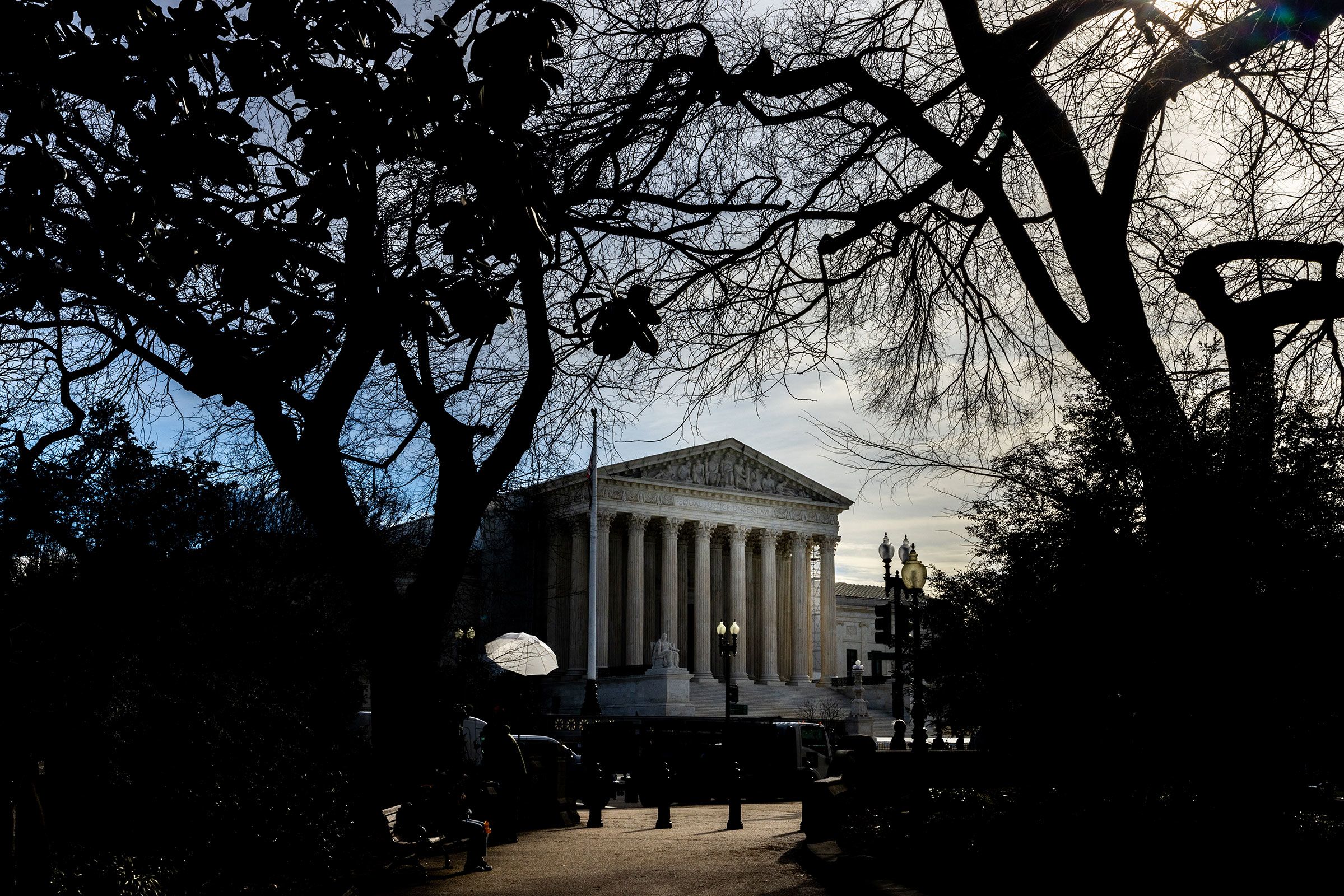Legal scholars are expressing concerns over the potential for political turmoil in the event that the Supreme Court avoids making a definitive ruling on former President Donald Trump’s eligibility to run for a second term. The crux of the issue lies in whether Trump participated in an insurrection, a violation of the 14th Amendment’s “insurrection ban”.
These experts fear that if the Supreme Court sidesteps this question and leaves it to Congress to enforce the insurrection ban, it could lead to a “catastrophic constitutional crisis” and “political instability”. They caution that this could “come back with a vengeance” if Trump wins the election next year.
Gerard Magliocca, a law professor at Indiana University and a leading expert on the insurrection ban, warns, “This is volatile stuff.”
During the oral arguments on Thursday, a majority of the justices seemed to lean towards Trump’s argument that Colorado did not have the authority to remove him from the ballot. However, this does not address the question of whether Congress can declare him ineligible to serve.
If the Supreme Court rules that states cannot enforce the ban and Trump wins the general election, it could spark a dispute over whether Congress must enforce it. Democratic lawmakers could challenge Trump’s eligibility when electoral votes are counted next January.
Magliocca, who supports the Colorado voters challenging Trump, says, “If the court says only that states cannot enforce (the ban) against presidential candidates, that is not the same as saying that Trump is eligible to serve. The court would be taking no view on that question. And that means that if Trump wins, people will feel free to go to Congress on January 6, 2025, and ask them to declare him ineligible.”
The ballot case is separate from Trump’s claim of immunity from criminal prosecution, which landed at the Supreme Court on Monday. Trump asked the high court in that case to block a ruling from the DC Circuit that rejected his claim of immunity from election subversion charges brought by special counsel Jack Smith.
In the ballot litigation, Trump is appealing a decision from the Colorado Supreme Court in December that he incited the attack on the US Capitol as electoral votes were being counted in 2021.
Arguments at the US Supreme Court last week focused less on whether there was an insurrection and more on technical questions about whether states may enforce the ban. A decision could come at any time.
Many experts speculate Chief Justice John Roberts may be eager to deal with the ballot case quickly and with something close to unanimity. If he is seeking a ruling that can capture support from conservative and liberal justices, he would most likely avoid discussion of whether Trump took part in an insurrection.
Before arguments took place, some scholars were sounding an alarm about a decision that doesn’t resolve fundamental questions about Trump’s role on January 6, 2021. A brief filed last month by three prominent election law experts warned of a worst-case scenario they said would “fan the flames of public conflict.”
“Even worse for the political stability of the nation is the prospect that Congress may actually vote in favor of his disqualification after he has apparently won election in the Electoral College,” the lawyers wrote. “Neither Mr. Trump nor his supporters, whose votes effectively will have been discarded as void, are likely to take such a declaration lying down.”
And, they wrote, the rules about what happens next if Congress were to find Trump ineligible are “dangerously unclear.”
The court could avoid the uncertainty by clearly holding, for instance, that Trump wasn’t involved in an insurrection or that the 14th Amendment’s ban doesn’t apply to former presidents. Trump argued that when the insurrection ban referred to someone serving as an “officer of the United States,” that language meant federal officials appointed by the president, not the presidency itself.
It might also embrace one of Trump’s earlier arguments that his words at a rally outside the White House before the Capitol attack were protected by the First Amendment.
“Any of those… rulings would not leave the issue open to Congress,” said Edward Foley, director of the election law program at The Ohio State University and one of the authors of the brief filed at the Supreme Court last month.
A political fight over eligibility would likely be limited to Congress, but it could sweep the Supreme Court back into the thicket, as well.
“Depending on just how horrendously ugly the situation could get, the court might feel compelled to become involved,” Foley said.
The issue of future fallout came up during the oral arguments last week, including during a brief exchange between Justice Ketanji Brown Jackson, nominated by President Joe Biden, and Jason Murray, the lawyer representing the voters challenging Trump.
“If we think that the states can’t enforce this provision for whatever reason in this context, in the presidential context, what happens next in this case?” Jackson asked.
“Is it done?”
Murray said the current case would be over but warned the underlying issue could “could come back with a vengeance.” Ultimately, Murray said, members of Congress “may have to make the determination after a presidential election if President Trump wins about whether or not he is disqualified from office.”
If Trump wins in November, it’s possible some Democrats would try to reject votes cast for Trump, said Derek Muller, a law professor at Notre Dame who has followed the case closely. Politically, Democrats would have to win a majority of both houses to have a chance of success. And if they were successful, the election would be sent to the House of Representatives to choose the next president – an outcome, Muller said, that “no one wants to see.”
Contributions to this report were made by CNN’s Katelyn Polantz.

